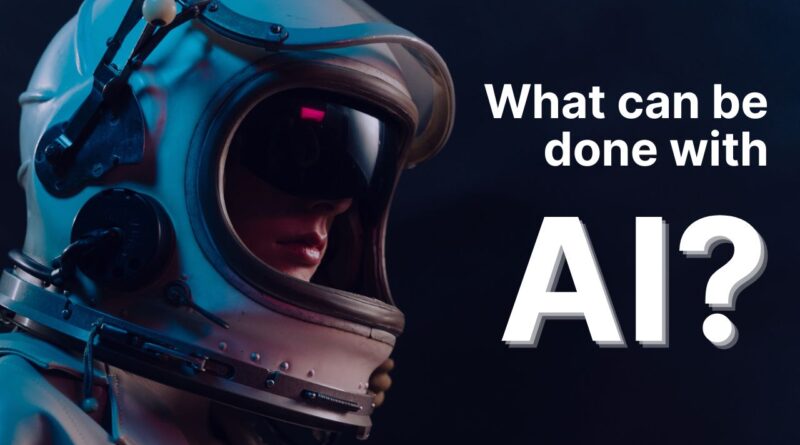The Fascinating World of Artificial Intelligence: How AI is Transforming Our Lives
Introduction
In recent years, Artificial Intelligence (AI) has emerged as a transformative technology, reshaping industries and revolutionizing the way we live and work. With its ability to mimic human intelligence and learning capabilities, AI has proven to be a game-changer in various fields. In this blog post, we will delve into the exciting world of AI, exploring its applications, benefits, and impact on society. Join us on this journey to understand how AI is transforming our lives.
Understanding Artificial Intelligence
Artificial Intelligence refers to the development of computer systems that can perform tasks that typically require human intelligence. AI algorithms analyze large datasets, learn from patterns, and make informed decisions to accomplish specific objectives. There are two primary types of AI: Narrow AI and General AI. Narrow AI is designed for a specific task, while General AI possesses human-level intelligence and consciousness, which is still largely theoretical.
AI Applications in Everyday Life
AI has integrated seamlessly into various aspects of our daily lives, often without us even realizing it. Search engines, such as Google, use AI algorithms to understand user queries better and deliver more relevant results. AI-driven recommendation systems, like those used by Netflix and Amazon, suggest products and content tailored to individual preferences, enhancing user experiences.
Additionally, virtual assistants like Siri, Alexa, and Google Assistant rely on AI to understand natural language and provide useful responses. Smart home devices, self-driving cars, and personalized healthcare applications are further examples of AI permeating our daily routines.
AI in Business and Industry
Businesses across industries have recognized the potential of AI to streamline operations and improve efficiency. In manufacturing, AI-powered robots can perform complex tasks with precision, reducing the need for human intervention and enhancing production rates. AI-driven chatbots facilitate customer service interactions, addressing queries and concerns promptly, leading to higher customer satisfaction.
Furthermore, AI analytics help companies derive valuable insights from vast datasets, enabling data-driven decision-making. AI also plays a vital role in fraud detection, risk assessment, and financial analysis, making businesses more resilient and secure.
The Ethical Implications of AI
While AI presents numerous benefits, it also raises ethical concerns. Privacy and data security are critical issues, as AI systems often rely on vast amounts of personal data to function effectively. Ensuring that AI applications adhere to strict privacy regulations is crucial to protect individuals’ rights and maintain public trust.
Moreover, the potential for AI to replace human jobs raises concerns about unemployment and economic inequality. Balancing the integration of AI with measures to reskill and upskill the workforce is essential for a sustainable future.
AI in Healthcare
The healthcare industry has witnessed significant advancements through AI. AI algorithms can analyze medical images with greater accuracy, aiding in the early detection of diseases like cancer. Additionally, AI-enabled wearable devices continuously monitor patients’ health, providing real-time data to healthcare professionals for better diagnoses and treatment plans.
AI’s predictive capabilities also contribute to disease outbreak forecasting and drug development, supporting public health efforts on a global scale.
AI in Education
The education sector is embracing AI to cater to diverse learning needs and improve educational outcomes. AI-powered adaptive learning platforms personalize educational content based on individual strengths and weaknesses, optimizing the learning process for each student.
Moreover, AI tutors and language learning apps provide learners with instant feedback, making language acquisition more effective and engaging. AI-driven assessment tools help educators analyze student performance data, identifying areas that require additional support.
The Future of AI
The future of AI holds endless possibilities and potential. As technology continues to advance, so will AI’s capabilities. The pursuit of General AI remains a significant goal for researchers and developers, though it poses considerable challenges and ethical considerations.
In conclusion, Artificial Intelligence is reshaping our world and revolutionizing the way we interact with technology. Its applications span various industries, offering benefits that enhance efficiency, productivity, and overall human experiences. As we navigate the exciting future of AI, it is essential to address ethical concerns and ensure responsible deployment to create a more inclusive and prosperous society. Embracing AI’s potential while safeguarding human values will undoubtedly lead us to a promising and transformative future.


